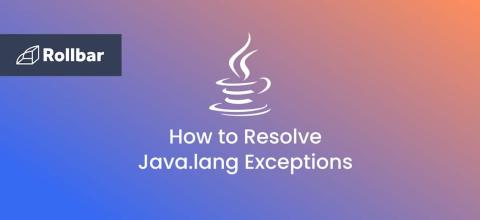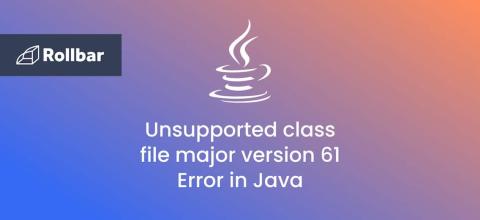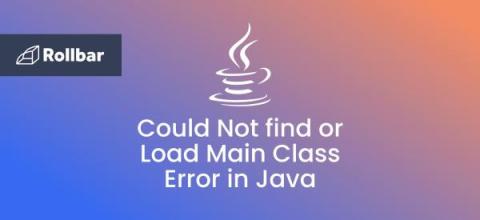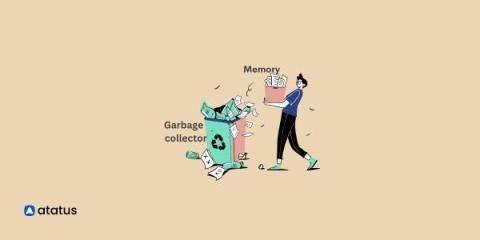Systems | Development | Analytics | API | Testing
Java
How to Handle java.lang.IndexOutOf BoundsException
How to Fix java.lang Illegal Argument Exception Unsupported Class File Major Version 61
Self Healing in Java Selenium Test cases with Healenium | Docker
Annual Java Report Reveals 42% of Companies are Dedicating Resources to Developer Productivity
Visual Testing using Percy with Selenium | Java
How to Fix "Could not find or load main class" in Java
The Java error “Could not find or load main class” is thrown when the JVM fails to find or load the main class while executing a program. This is often due to simple mistakes like typing the wrong class name or having the class file in the wrong place. It usually occurs when executing a Java program from the command line. Install the Rollbar Java SDK to identify and fix these errors.
Java Garbage Collection - Manage your system's memory effectively
Have you ever wondered how computer programs manage their memory, like how they clean up after themselves to keep things running smoothly? what happens to all those blocks you are no longer using? This is where the role of the garbage collector becomes significant. Think of the garbage collector as a diligent assistant that recognizes tools you have finished using. It proceeds to carefully place these tools back into their storage, effectively reclaiming memory.
JVM Thread Insights: How to Spot and Diagnose Waiting Threads
JVM uses threads to execute every single operation. And during its lifetime, these threads can go through various stages. One such stage, where the threads are unable to move any further or are blocked from operating is called as the thread-waiting situation. There are various scenarios in which a thread can enter a waiting state. Identifying and diagnosing thread-waiting situations is important for maintaining the performance and reliability of multithreaded applications.











